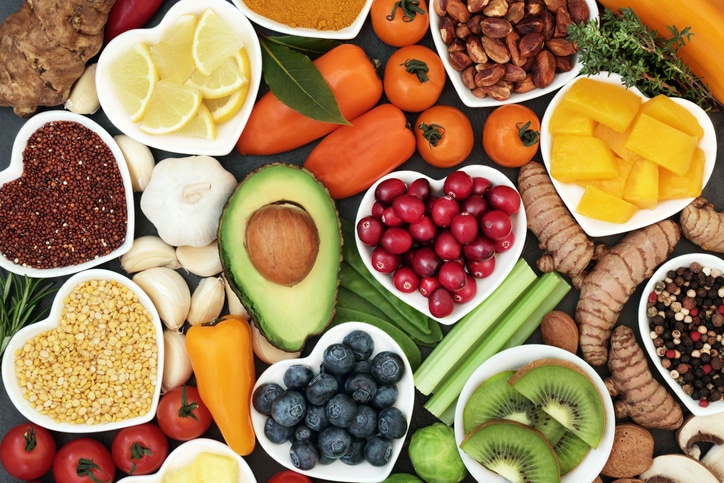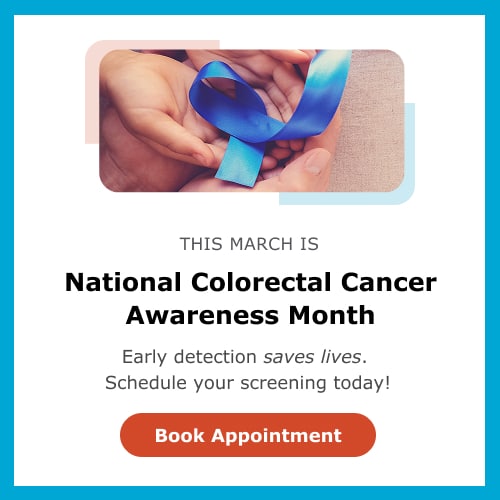Heart disease is one of the most common diseases in men and women and causes 1 in every 4 deaths in the U.S. The term heart disease refers to any disorder or deformity of the heart, including congenital heart disease, arrhythmia, coronary artery disease and heart failure. While heart disease has often been perceived as an older person’s health condition, it has been occurring more frequently in younger populations, ages 35-64, making it all the more critical to be proactive about heart health.
Fortunately, there are factors you can control to reduce your risk of developing this disease. Maintaining a healthy lifestyle and diet can be one of your best defenses against heart disease. Certain foods can help to decrease your body’s blood pressure, triglycerides, blood cholesterol and inflammation, which are all risk factors for developing heart disease.
Here are six nutritious foods to incorporate into your diet to improve heart health.
A List of The Best Heart-Healthy Foods
Replacing your current eating habits with just a few of these foods could make a big impact on your overall cardiovascular health.
1. Healthy nuts
Most nuts (especially almonds, walnuts and pecans) are considered healthy, but some are packed with more heart-healthy nutrition than others. In addition to being a great source of protein, most nuts contain Omega-3 fatty acids, vitamin E, fiber and unsaturated (healthy) fats. The Mayo Clinic advises that even though most nuts are considered a wholesome snack, you should still eat them in moderation as they are high in calories and can be made up of 80% fat.
2. Fatty Fish
Certain fish are high in Omega-3 fatty acids as well as protein, making it a great staple to add to your family’s grocery list. Omega-3 fatty acids are full of health benefits and can reduce your risk of developing heart disease and stroke. Fish, unlike other meat products, are high in Omega-3s but not saturated, unhealthy fats. In fact, the American Heart Association recommends eating fatty fish, such as salmon, mackerel, albacore tuna and herring, at least twice a week to receive maximum heart-health benefits. With that being said, it is important to avoid eating certain fish in excess that contain high levels of mercury, dioxins and other environmental contaminants; these fish include swordfish, shark, tilefish and other large predatory fish.
3. Whole Grains
Not all grains are created equal when it comes to nutrition, and some are more beneficial to your diet while others should be avoided altogether. Nutritionally-rich whole grains like brown rice, quinoa, barley and whole wheat, have been shown to reduce your risk of heart disease, type 2 diabetes and obesity. Particularly, whole grains are a good source of fiber, B vitamin and antioxidants, which are considered heart-healthy nutrients. The American Journal of Clinical Nutrition found that eating three or more servings of whole grains per week may significantly decrease your body’s systolic blood pressure between 3 and 6 mm Hg, which is enough to reduce the risk of stroke by 15-25%.
4. Oatmeal
Oatmeal not only contains properties that can help subside hunger for hours, but it also helps maintain blood sugar levels, making it a great addition to add to your diet. Oats are considered a well-balanced whole grain that contains important nutrients, antioxidants and minerals, such as zinc, iron, magnesium, vitamin B1 and B5, phosphorus and manganese. In addition, the beta-glucan fiber found in oats has been shown to reduce LDL cholesterol levels (which is considered the “bad” type of cholesterol). Add steel cut or slow-cooked oats to your breakfast menu and enjoy its many perks!
5. Berries
Berries are an excellent source of heart-healthy phytonutrients, soluble fiber and antioxidants. Some of the healthiest berries you can incorporate into your diet include blueberries, raspberries, strawberries and cranberries. These fruits are low in calories but high in fiber and taste. Berries have also been proven to lower blood pressure and cholesterol, making them a heart-healthy snack option. Try and swap out sugary breakfast cereal for a nutrient-packed smoothie or yogurt with berries!
6. Legumes
Studies show that consuming legumes, including beans, lentils, chickpeas and peas, can reduce your risk for developing heart disease by up to 10%. Eating a diet that includes legumes has also proven to reduce levels of cholesterol and triglycerides, lower blood pressure and decrease inflammation. In addition, legumes are a great source of protein and do not contain some of the saturated fats that are found in animal proteins. Add a cup of legumes when making soups, stews or salads and enjoy a protein-rich, nutritious meal.
Foods to Limit or Avoid for Heart Health
Keeping a healthy cardiovascular system means that certain foods will have to be limited or avoided altogether. These foods include:
- – Soft drinks or sugary drinks
- – Processed and cured meats
- – Highly refined grains
- – Deep-fried foods
- – Candy
- – Margarine and butter
Consuming these foods can contribute to inflammation, high cholesterol and diabetes, which are all risk factors for developing heart disease.
The Benefits of Eating Heart-Healthy Foods
Eating a well-balanced diet can have a positive impact on many facets of your life, including your heart health. Incorporating these foods into your diet can help reduce your risk of developing many cardiovascular diseases, including heart disease. Making any lifestyle or diet change can seem like a challenging task, but remember that your primary care doctor is the best place to start. Schedule a consultation to discover how we can help you make any diet changes to improve your overall heart health.
If you’re in Connecticut and would like to find a doctor near you, you can locate a board-certified Physicians Alliance of Connecticut primary care physician using our searchable list here.
Looking For a Primary Care Doctor in Connecticut?
PACT Primary Care is Accepting New Patients!
Locations throughout Connecticut in Guilford, Hamden, Madison, Milford, New Haven, Orange, West Haven and Wallingford.
To schedule an appointment, request an appointment online here or call a local center near you.









